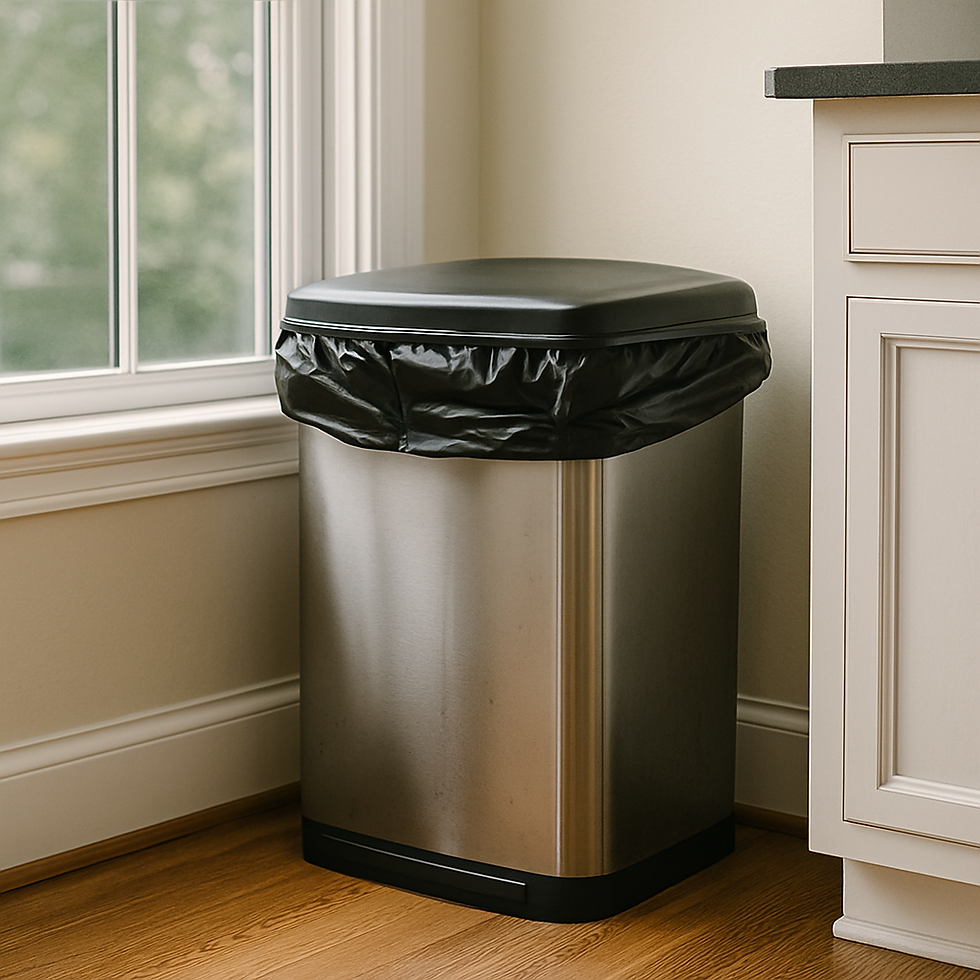Moisture Can Lead to Pests
- Michael Radovic
- Jan 26, 2023
- 3 min read

Long Island and most of the region have recently gone through a severe cold snap. When temperatures get so cold, it is common for pipes to burst leading to water in walls, the garage, and throughout the house.
When a pipe burst happens inside the home, it can lead to serious problems requiring you to remove drywall and insulation, rip up carpets, and even throw out furniture that could not be properly dried and cleaned.
When you have water in your house, you need to check the lowest parts of the house for water damage or any moisture. Water will always find the lowest parts of a house. If you have an unfinished basement or a crawlspace, it may not be as easy to spot water damage, but it is vital that you check these areas to ensure that they are cleaned up and that you remove any damaged drywall or treat areas that cannot be removed, so the water and moisture don’t lead to future serious problems such as mold. Mold can lead to serious health problems. Exposure to mold can lead to serious allergic reactions and can be especially dangerous for people with asthma.
Besides mold, most bugs and other pests are attracted to moist areas for the water they need to survive. Here are some pests you should look for if you have moisture in your basement or crawlspace.
Cockroaches – Even if your home is otherwise spotless, moisture in a basement will attract cockroaches. Cockroaches are carriers of several severe diseases, such as dysentery, Gastroenteritis, and Salmonellosis.
Earwigs – These are one of the more common humidity bugs since they are always thirsty. If you see any earwigs, chances are you have a colony somewhere close by.
Silverfish – These crazy-looking bugs are usually found outside under rocks due to the moisture in the dirt. If you have a lot of moisture in your home, these bugs will find their way inside. They are not dangerous pests, but you don’t want them inside your home.
Ants – Ants are attracted to the food in your pantry, the water in your kitchen and bathroom, and the moisture in your basement. You do not want a colony of ants living in your basement regardless of the species, but if you wind up with carpenter ants, your problems will multiply as fast as the ants do.
Mosquitoes – Mosquitoes are not only a nuisance but also carriers of diseases like West Nile, Zika, and Eastern Equine Encephalitis.
Termites – Subterranean Termites are attracted to houses and buildings with an excess amount of moisture since moist wood is easier to chew through than dry wood. While there is a species of termites called Drywood termites, they are not very common in New York or Long Island. Luxe does not currently treat termites.
You can do several things to reduce or eliminate moisture from your basement.
If you had a pipe burst in your home, you should work with a professional restoration company. They will work with your insurance company to remove all water-damaged material and dry out your basement.
Other things to look for to reduce the moisture in your basement include:
Make sure your gutters are free of debris. Clogged gutters will cause water to overflow, run down your walls and settle in the lowest parts of your house.
Ensure the dirt and areas around your home are graded away from the house to bring water away from your walls.
If you have a basement or crawlspace with an exposed dirt floor, you need to work with a contractor to cover the earthen floor since the dirt brings in a high amount of moisture.
Make sure your clothes dryer is properly vented out of the house. The vented air has a high amount of moisture.
If you have a concrete floor, be sure to get it sealed. An unsealed concrete floor holds a lot of moisture. It attracts bugs, and the concrete can crack, leading to further problems.
Use a dehumidifier.
If you had a pipe burst, it is important to run a dehumidifier to get rid of as much moisture from the air as possible. You also allow walls and beams to dry out when you dry out the air. If you have a standalone unit, regularly empty the reservoir. If you plan on running a dehumidifier long-term, it is best to get one that connects to a garden hose to the floor drain or a nearby slop sink.
Moisture is the enemy of a homeowner. Whether you are talking about mold or pests, moisture in a basement or crawlspace can lead to serious and expensive problems.
If you have a problem, such as a burst pipe, we recommend calling a restoration company specializing in water damage. If your basement has that musty smell and always seems to hold on to moisture, you may want to talk to a contractor about your options to avoid these other expenses.



Comments